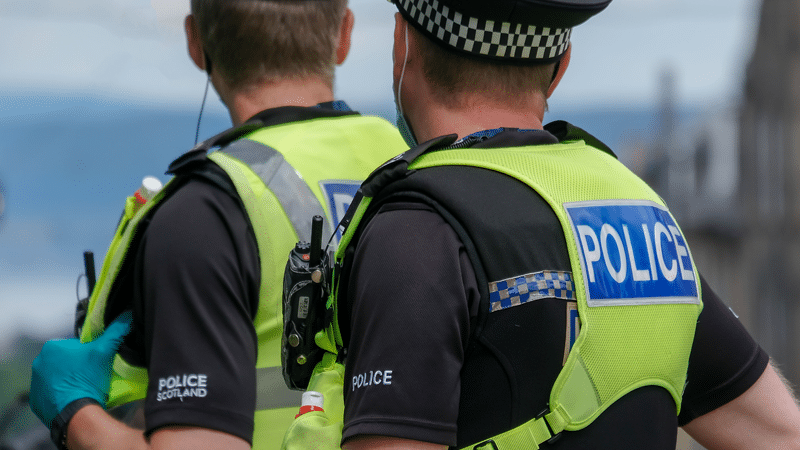A campaign to launch the Scottish Government’s controversial new hate crime law is advising the public to call the police over ‘hurtful words’.
Passed in 2021, the Government’s Hate Crime and Public Order Act comes into force on 1 April. It makes it a criminal offence to ‘stir up hatred’ against certain groups.
Significant amendments had to be made to the original Bill to stop it posing a major threat to evangelism and Christian comment on sexual ethics. However, concerns remain over the impact on free speech.
Threshold of hate
Under the strapline “Hate Hurts”, the Scottish Government’s promotional video on the legislation states: “Sticks and stones may break my bones, but words make me feel hated”.
Minister for Victims & Community Safety Siobhian Brown said: “While we respect everyone’s right to freedom of expression, nobody in our society should live in fear or be made to feel like they don’t belong.”
According to the Government, the law will provide greater protection for people with protected characteristics including religion, sexual orientation and ‘transgender identity’.
A list of reporting centres in Glasgow on Police Scotland’s website includes a sex shop and the HQ of LGBT Youth Scotland.
‘Not fit for purpose’
Writing in The Scotsman, political commentator Euan McColm said the new legislation “replicates existing laws”, poses a threat to free speech, and is not “fit for purpose”.
He identified “two obvious – and surely fatal – problems with the new law. The first is that leaving police across the country to judge whether a controversial opinion expressed passes the threshold for prosecution is not at all good for the health of freedom of speech. The second is that it is wide open to abuse.”
He continued: “It is commonplace, today, for some campaign groups to regularly involve the police whenever dissenters speak up.”
Citing recent allegations made against Harry Potter author JK Rowling, he observed: “Over recent years, for example, we’ve seen frequent accusations of criminal behaviour by trans rights activists against gender critical feminists who hold that sex is immutable.”

The Institute spearheaded the Free to Disagree campaign, which won crucial amendments to the Hate Crime Bill.
Indefensible
He concluded: “Can we expect the new legislation to lead to an increase in the number of people trying to criminalise those with whom they disagree? What do you think?
“We’ve been here, before, with the SNP. Its Offensive Behaviour at Football Act had to be scrapped after its clear infringement on free speech became indefensible. Don’t be surprised if the Hate Crime Act meets the same fate.”
A previous Scottish Government ‘hate crime’ initiative was slammed by its own ministers after appearing to brand all religious people as ‘hateful’.
The controversial £300,000 ‘Dear bigots’ campaign in 2019 sparked a backlash from current and former Cabinet Secretaries, who expressed concerns that it particularly targeted Christians.
Cost
In 2021 it was revealed that the Act would cost the country around £1.2 million to implement.
A Freedom of Information request by The Christian Institute-backed group Free to Disagree uncovered documents detailing an estimated cost of at least £1,160,600.
The documents set out costs including recurring annual fees of £527,600, recorded data provision fees of £488,000 and one-off fees of £100,000.
The fees will impact Police Scotland, the Crown Office and Procurator Fiscal Service, the Scottish Courts and Tribunals Service and other “justice partners”.
Rowan Atkinson on the importance of free speech

